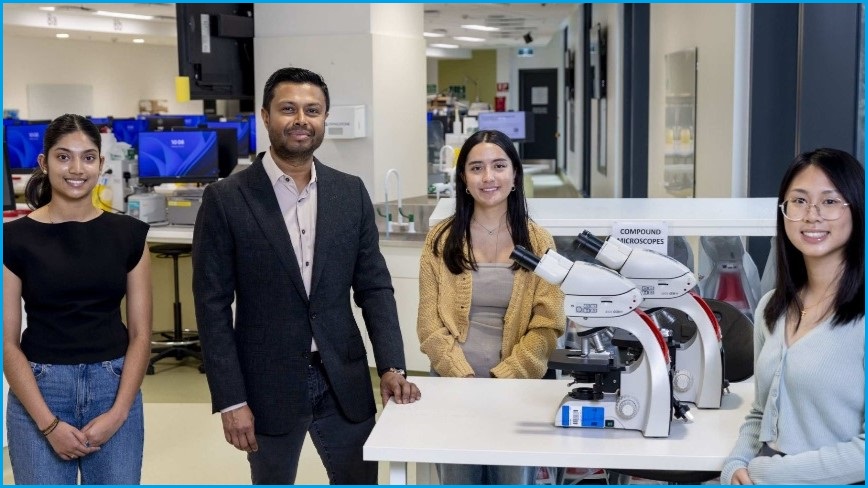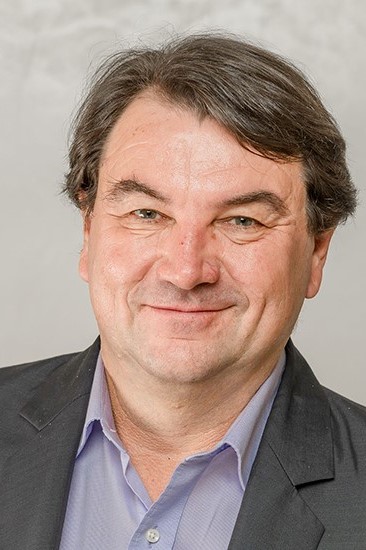Diversity and gender equality might be dirty words in some political and business circles right now, but not for AirTrunk founder and CEO Robin Khuda, who sold his 9-year-old data centre business last year for $23.5 billion.
The freshly minted billionaire, who arrived from Bangladesh nearly 30 years ago as a teen to study accounting at UTS, went on to found AirTrunk in 2015.
Now he’s made the state’s largest single philanthropic gift, with the Khuda Family Foundation donating $100 million to the University of Sydney for a 20-year program to create opportunities for girls from Western Sydney to study then find careers in STEM (Science, Technology, Engineering and Mathematics).
“I want to give back and make a long term positive societal impact because of my belief in the importance of diversity in STEM,” he said, announcing the philanthropy.
Few, beside Melinda French Gates, who pledged to donate $1.5 billion ($US 1billion) in 2025-26 to women’s causes and gender equity around the world, and author MacKenzie Scott, who has given $26 billion to over 2,300 non-profits over the last five years to support of women, have been as generous in backing women
This is one of the largest investments in women in STEM globally.
More women in STEM
The Khuda Family Foundation STEM Program aims to address the persistent underrepresentation of women studying and working in historically male-dominated STEM degrees and employment by attracting more girls to STEM subjects in school, then retaining and supporting them through tertiary studies to pursue STEM careers.
University of Sydney vice-chancellor Professor Mark Scott said the funding will lead to a generational change in addressing diversity, skills and participation in STEM.

University of Sydney vice-chancellor Professor Mark Scott [L] with Robin Khuda. Photo: Supplied
“Robin Khuda came to the University with a challenge he knew we cared deeply about – the lack of gender diversity in STEM and of opportunities and support for students to pursue their interest in STEM studies and careers,” he said
“We’ve worked together in close collaboration to create this program and forge this partnership, which will create life-changing opportunities for girls and women from Western Sydney.”
It’s a pipeline of talented young women that will appeal to the Tech Council of Australia’s ambitions of creating 1.2 million tech jobs by 2030.
It’s worth noting Khuda was supposedly in the running to join its board, but instead Tech Council chose another billionaire, WiseTech’s Richard White, who resigned just a few months later.
A boost for Western Sydney
While the Tech Council is chaired by a woman from Western Sydney, Khuda, who also built his life in the region by opening AirTrunk’s first data centre there in 2017, recalls the challenges he faced in finding women for technical and senior management roles.
“Western Sydney, compared to other areas of Sydney, hasn’t had the same level of educational support for students to pursue an early interest in science and technology, and converting their interest into a university degree with that focus,” he said.
“I chose to work with the University of Sydney on this program because of our shared commitment to contributing to the growth of Western Sydney and the need to address gender inequality.
“A leader in STEM education, the university has an outstanding academic, research and teaching reputation, and the flexibility and agility to deliver and evolve this program.”
The outreach stage of the program will commence with six schools and the first pilot cohort scholars are expected to enrol at the University in 2027.
The program guarantees an undergraduate place and scholarship for girls who qualify at the HSC stage.
It will also consider communities outside Western Sydney where girls and women face obstacles pursuing STEM studies and careers.

Robin Khuda with undergraduate STEM students [L to R] Loretta Payne, Anandikaa Ramesh and Samantha Jap. Photo: Supplied
It has three stages, kicking off in year 7, then running all the way to university scholarships:
The Khuda Family Foundation Outreach Program runs in high schools, years 7 to 10. Working with partner schools, it will offer specialised STEM curriculum-aligned activities for boys and girls in schools and on campus to ignite an interest in physics, maths and engineering. When fully implemented, it will reach 40,000 students.
The Khuda Academy for years 11 and 12. Open to girls in partner schools through academic support and an annual bursary to enable girls to retain their STEM subjects. Includes dedicated group tutoring, mentoring by University of Sydney students and on-campus STEM activities. Aims to reach over 1200 students once fully implemented.
The Khuda Scholars Academy graduates will access a guaranteed scholarship stipend, including funds for university-owned accommodation as needed. This stage of the program offers specialised mentoring and support to participants throughout their STEM undergraduate degree. It aims to graduate a cohort and community of over 300 women.
Generosity abounds
Khuda sounds like the kind of tech boss you want to work for.
Following the sale of AirTrunk last year, Smart Company reported that he gave staff $65,000 end-of-year bonuses.
Now he’s sharing his success more widely.
“The recent acquisition of AirTrunk is the outcome of many years of hard work and dedication – now I want to give back and make a long-term positive societal impact because of my belief in the importance of diversity in STEM,” he said.
“The Khuda Family Foundation STEM Program will establish an invaluable cohort-effect – creating a community, and in time STEM alumni and leaders, giving girls the resources, role models and mentors to empower their success.
“It is a long-term program, and its benefits will multiply over time.”
AirTrunk’s sale was also a good deal for Macquarie Group, which acquired a majority stake (88%) in 2020 at a $3 billion valuation.
This article is republished with permission from Startup Daily. You can read the original here.










